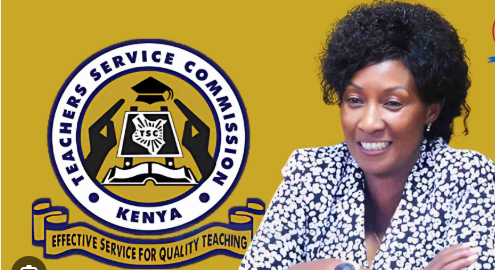360,000 Teachers Can’t Access SHA Services- TSC
The ongoing crisis regarding access to healthcare for over 360,000 teachers and their dependents under the Teachers Service Commission (TSC) medical plan remains unresolved, as the Social Health Authority (SHA) declined to incorporate them due to lack of capacity and significant cost implications.
While addressing the National Assembly’s Education Committee, TSC Chief Executive Officer Nancy Macharia disclosed that although the government allocated Sh20 billion for the medical coverage of teachers, SHA stated it would need Sh37 billion to accommodate the beneficiaries.
“This funding gap also impacted the previous National Health Insurance Fund (NHIF), prompting us to renew our agreement with Minet Insurance,” said Macharia.
The Commission engaged in a three-year agreement with Minet, extending from December 1, 2022, to November 2025.
“Last year, when we encountered issues with Minet, our goal was to transition our teachers to SHA. We have always aimed for our teachers to benefit from the national insurer, even during NHIF’s period,” she continued.
“However, SHA informed us that they lacked the adequate infrastructure and required Sh37 billion to take over the plan, which we currently manage with Sh20 billion. That is where we faced a barrier. ”
The scheme administered by Minet has faced significant criticism from lawmakers, who described it as a “mongrel system” that does not provide timely and effective healthcare services to teachers and their families.
Igembe North MP Julius Taitum raised concerns about the integrity of the tender process, implying that the absence of competing bidders may be a tactic to uphold a monopoly.
“You stated that no other insurance firms submit bids during tendering. Is this due to the current administrators mismanaging the scheme to discourage competition? Are they undermining the process to remain uncontested? ” he queried.
Teso South MP Mary Emase passionately implored the committee by sharing real-life instances of teachers experiencing prolonged delays or outright denial of care due to sluggish approvals.
“I am aware of a teacher whose approval from Minet was postponed until we needed to step in through agents. In Bungoma, teachers spend hours waiting in hospital lobbies. Some are even accused of fabricating illnesses just to receive care,” Emase expressed with dismay.
Committee Chair Julius Melly resonated with the frustrations, branding the medical scheme as dysfunctional and structurally inadequate. He referenced a situation where a teacher was confined in a hospital for three months due to delayed payments, with Minet finally clearing the bill after ongoing pressure.
“We’ve encountered instances where teachers are detained in hospitals for months because the school isn’t recognized as a service provider. That’s unacceptable,” remarked Melly.
He urged the TSC to abandon the current consortium-based model and investigate decentralized, competitive options.
“You should allocate teachers among various reputable insurers. What you have right now is a disorganized system—it’s chaotic and ineffective,” he asserted.
Luanda MP Dick Maungu condemned the centralized approval structure, attributing it to ongoing delays. He recommended a cluster-based strategy to enhance service delivery and lessen the burden on central administrators.
“With Bliss Healthcare managing approvals for every teacher, it’s not surprising that holdups are frequent. Why not divide them into smaller, easier-to-handle groups? ” Maungu proposed.
Baringo North MP John Makilap cautioned that unless major adjustments are made before the contract ends in November 2025, teachers will persist in facing difficulties under the present arrangement.
“This plan is unclear and inadequately organized. If we don’t reorganize it either by splitting teachers into groups or shifting them to SHA it will continue to fall short for them,” he commented.
Taitum urged for a comprehensive inquiry into the consortium’s activities, claiming that it was undermining the welfare of teachers.
“This arrangement is denying fairness to our teachers. It’s a coalition of insurers collaborating, and we require a full-day meeting to question them and discover a solution,” he asserted.
Nonetheless, TSC Director of Legal Services Cavin Anyour defended the current framework, contending that it is the best option available in the private sector.
“At the time of bidding, Minet arrived with a coalition of eight leading medical insurers. They’re the country’s foremost providers and each has a specific function. They incorporated all capable firms, sidelining the smaller players who lacked capacity,” Anyour clarified.
